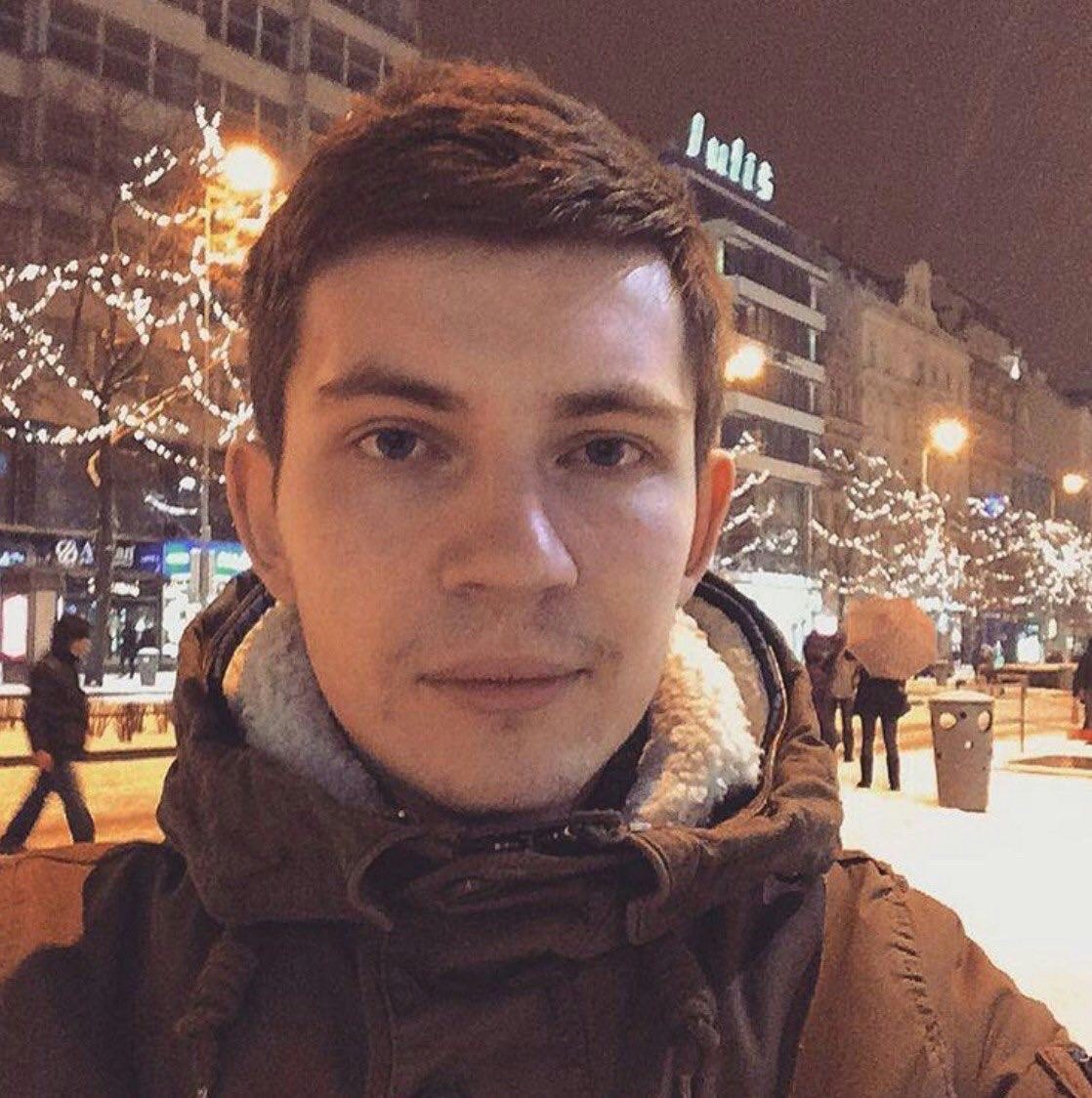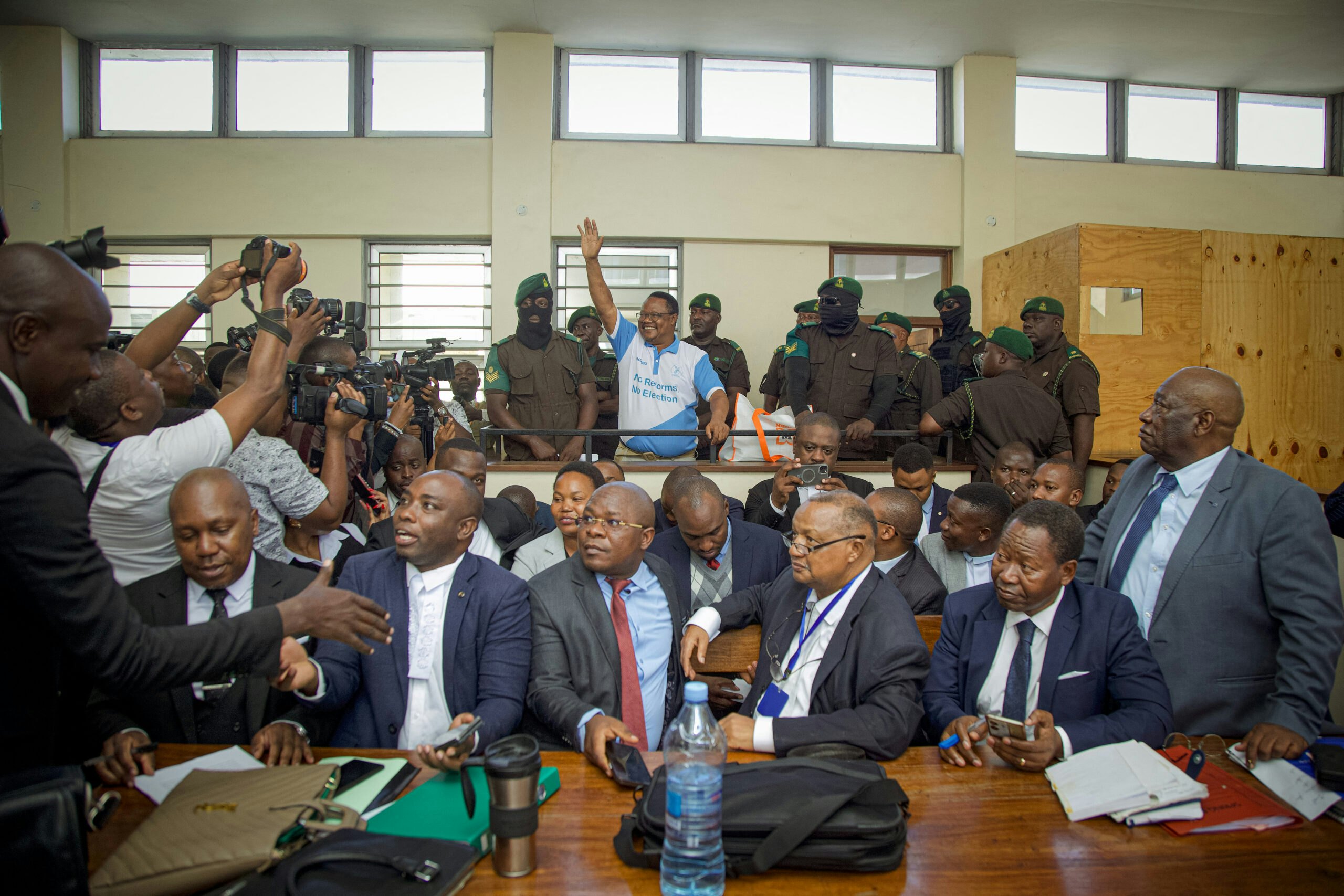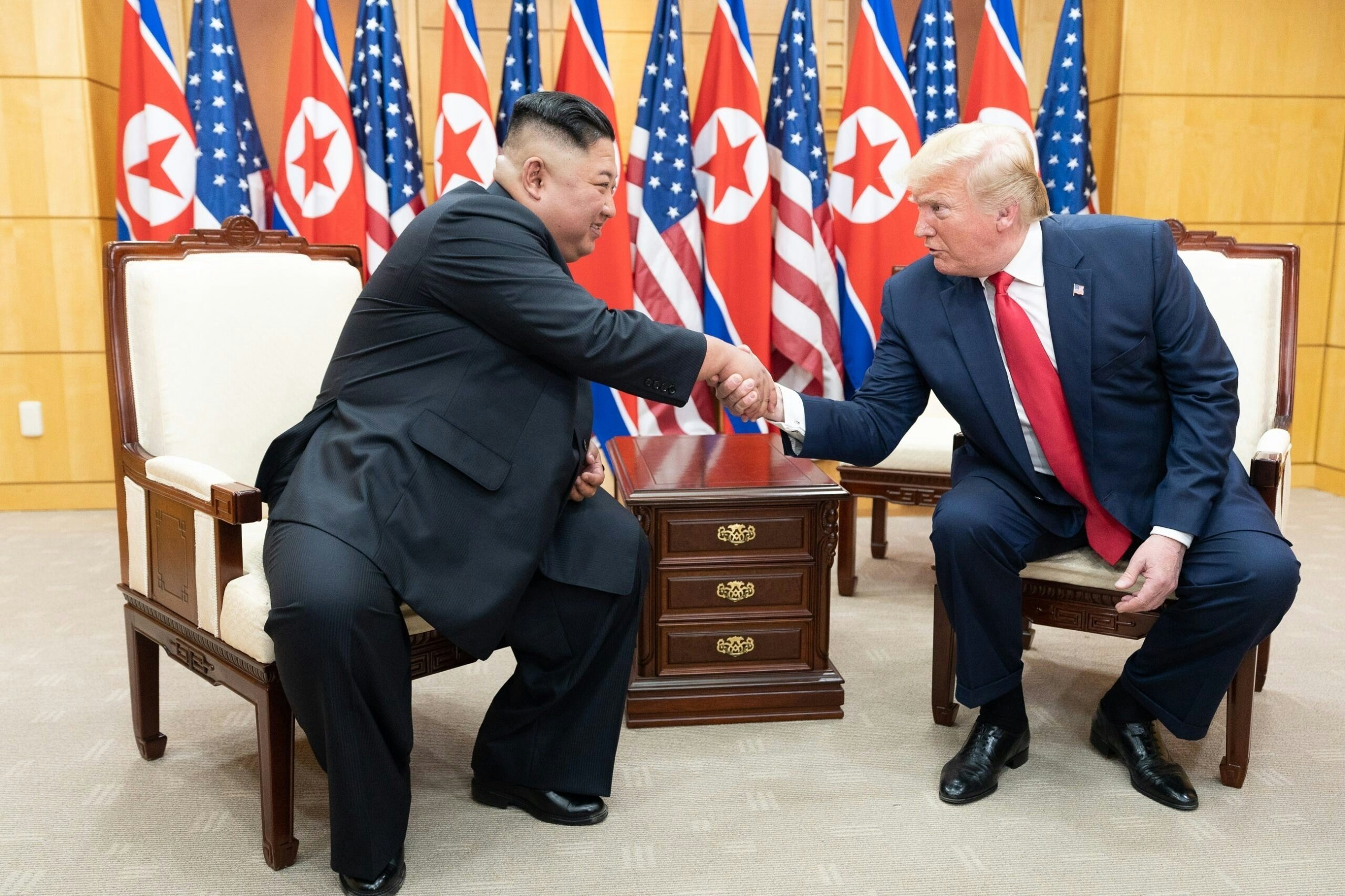Popular Belarusian blogger Ihar Losik was taken as a political prisoner and sentenced to 15 years in jail in an ongoing effort by the Lukashenka regime to silence opponents and neutralize the digital media.
Dictators make all political prisoners suffer, but Belarus’ Alexander Lukashenka is known for torturing them by targeting their loved ones as well.
Ihar Losik, a popular blogger and contributor to Radio Svaboda, the Belarus Service of Radio Free Europe/Radio Liberty, was sentenced to 15 years in jail in December 2021 after a five-month closed door trial. Daria Losik, his wife, received a two-year sentence in January for referring to her husband as a “political prisoner” in a television interview with an exiled Belarusian television station. Paulina, the Losiks’ daughter, just 2 years old when Ihar Losik was arrested, is now without her mother or father, cared for by her grandparents.
Belarus formally gained independence in 1991 after the break-up of the Soviet Union. After being elected in 1994 presidential elections – fairly, by all accounts – Lukashenka gave himself absolute powers soon after. While Belarus’ neighbors in Poland, the Baltic states, and Ukraine, emerged from Soviet domination to assert national identities intertwined with democracy, Belarusians have remained under Lukashenka’s increasingly harsh rule, which is propped up with support from Russia’s Vladimir Putin.
But change seemed possible by 2020 as the country prepared for presidential elections in August. Faced with burgeoning opposition to his rule, Lukashenka sought to neutralize the digital media that provided Belarusians with vital information.
“The authorities realized they were losing the digital space, so they went out and arrested some of the most prominent people engaging online in independent media,” Radio Free Europe/Radio Liberty President Jamie Fly told me. “Ihar is very savvy. They were very afraid of him and people with his skill set in the run-up to the election, and the results show why they should have been afraid.”
The popular video blogger Siarhey Tsikhanousky was also arrested to keep him from running for president (and was later sentenced to 18 years in the same trial as Losik). With her husband in jail, Sviatlana Tsikhanouskaya, Siarhey’s wife, stepped forward to contest the presidency. Exit polls and parallel vote counts – in which voters photograph their ballots – and other analyses showed Tsikanouskaya won more than 50% of the vote and that Lukashenka’s claim to have won 80% was fraudulent.
After Belarusians poured into the streets to protest peacefully, Lukashenka cracked down, brutally. Tens of thousands were rounded up in the weeks after the election. More than two years later, Belarus’ jails house just over 1,400 political prisoners. Virtually all independent media, civil society, and opposition politicians have been arrested or driven out of the country. Tsikanouskaya herself was forced into exile after threats.
Lukashenka is willing to do almost anything to stay in power, including offering Belarus as a base for Russian forces attacking Ukraine. Polls show Belarusians themselves oppose the war, which is particularly meaningful in a dictatorship where people are often afraid to express their views. This tension has put Lukashenka in a precarious position, trying to please his patron in Moscow, yet recognizing yet another source of Belarusians’ disaffection toward his regime.
The best hope for freedom in Belarus may come from next door – from Ukraine. Kyiv’s successful defense of its democracy and sovereignty against the Russian invasion, now entering its second year, would undermine Lukashenka’s chief patron, Putin, and provide a boost to the democracy movement in Europe’s last dictatorship.
A gifted analyst of digital trends
Many dictatorships have an element of the absurd – but words like “farce,” “lunacy,” and “buffoon” pepper coverage of the Lukashenka regime. His response to COVID-19 was to tell Belarusians to take a sauna, down a shot of vodka, and drive a tractor.
Perhaps that is why Losik, 31, who grew up under Lukashenka’s rule, developed a dry, ironic wit which drew followers to his popular blog and to his work at RFE/RL’s Belarus Service, Radio Svaboda. RFE/RL is a multimedia news organization that reaches 23 countries where freedom of the press is denied or restricted or where a free press is emerging. Its reporters frequently face physical and other threats. In addition to Losik, two other RFE/RL journalists are in jail: the web editor Andrey Kuznechyk in Belarus and Vladyslav Yesypenko in Russian-occupied Crimea. Although “radio” appears in its name, in most countries, RFE/RL is consumed chiefly on digital mediums like Facebook, YouTube, Instagram and Telegram, the encrypted messaging app.
At Radio Svaboda, Losik earned a reputation as a quiet, intense, and gifted analyst of news and digital trends. His former boss, Alexander Lukashuk, until this month Radio Svaboda’s director, told me Losik is “able to look at a dozen screens at same time, to see and process multifaceted news streams and provide content that drew more and more subscribers.” After Losik began managing Radio Svaboda’s Twitter account, “all of a sudden, we noticed our feed was being followed by the foreign affairs ministries of Poland and the Baltic states, the presidential administration of Ukraine, and Western embassies.” Losik was also plugged into grass roots sources. Writing in the New York Times, Chrystia Freeland, now Canada’s Deputy Prime Minister, credited him with getting the word out about Russia’s activities in Eastern Ukraine in 2014.
Losik’s expertise also helped direct Radio Svaboda’s deployment of scarce resources in covering unfolding events. By looking at social media activity, he could anticipate events and tell the Belarus Service’s one camera crew where to go.
Another key to Radio Svaboda’s success, and the ire of the authorities, is its use of the Belarusian language, which was repressed by the Soviet Union and afterward by Lukashenka himself. Using Belarusian is “very strong marker. It shows that you are interested in Belarus’ culture, history and democracy,” Radio Svaboda’s Lukashuk, told me. “The Belarusian language and democracy go hand in hand.”
The authorities have repeatedly denied the request of Ales Bialiatski, the founder of the Viasna human rights monitoring organization, who was arrested in 2021, to have his trial conducted in Belarusian, even though it is an official language. Bialiatski won the Nobel Peace Prize in 2022 while in jail, together with the Russian human rights organization Memorial, which was forced to close in 2021, and the Ukrainian human rights organization Center for Civil Liberties.
A bewildering pace of arrests and trials has left virtually nothing of independent media or civil society, not to mention political opposition, inside the country. The top editors of Tut.by – once the largest independent news outlet in the country – went on trial in December after being held in jail for more than one year. The regime has even resorted to arresting former journalists. And the authorities aren’t satisfied with criminalizing reporters and media outlets. Simply clicking on a link from a media outlet designated as an “extremist” organization, as RFE/RL is, can get a Belarusian sent to jail for seven days.
Some independent media outlets, like Tut.by, now operating as Zerkalo, which means “mirror,” and Belsat, to which Daria Losik gave an interview, have found refuge in nearby Poland and Lithuania. RFE/RL has opened new offices for Radio Svaboda in Vilnius and in Riga, Latvia, which will host Russian-language programming serving Russia and other Russian-speaking audiences in the region.
Leaving Belarus doesn’t guarantee safety, however. Lukashenka has become an enthusiastic practitioner of “transnational repression,” reaching out beyond borders to silence critics. Belarus accounted for nearly one third of incidents of transnational repression in 2021, according to Freedom House. The most dramatic example was the forced diversion to Minsk of an airplane carrying a prominent exiled blogger, Raman Pratasevich, to Lithuania from Greece. Sophia Sapega, a Russian law student and his girlfriend, was detained with him. After being taken into custody, Pratasevich made a forced confession on state television. Sapega has been sentenced to six years in jail. Also in 2021, Lukashenka sought to create leverage with the European Union by forcing vulnerable migrants he lured from the Middle East, Africa and South Asia across Belarus’ borders with Poland, Lithuania. Belarus’ forces failed to provide food, water and shelter and several died.
Belarus’ political prisoners endure worse conditions than other inmates, including physical abuse, overcrowding, and unsanitary conditions. In June, Losik was transferred to a hard labor prison colony where he has been assessed for made up infractions, such as “shaving badly,” that can lead to solitary confinement and denial of food packages.
“Fifteen years in prison for nothing, without seeing my daughter, is worse than death,” Losik, who is Catholic, wrote in a letter to Pope Francis. “I am not asking you to speak up for me personally,” he wrote to the pontiff, “ but to stand up for the good, for truth, for justice, for hundreds and thousands of Belarusians who lost hope after they found themselves in the same situation as I did, and many are even worse off.”
The body of activist Vitold Ashurak was returned to his family, wrapped in bandages, after he died in jail while serving a five-year sentence for participating in the 2020 protests.
Fellow inmates gave a harrowing account of Ashurak’s treatment, but usually information about individual prisoners is difficult to obtain. Many human rights lawyers have been imprisoned themselves, and few are willing to represent political prisoners. Losik’s lawyers fled abroad, and it took months to find someone willing to represent him.
What can be done
The loyalty of Belarusian security services personnel is, aside from Putin’s support, the most important pillar of the Lukashenka regime, according to Vlad Kobets of the International Strategic Action Network for Security and David J. Kramer, Executive Director of the George W. Bush Institute. Following the fraudulent 2020 election, a significant number defected from the police services, border forces, and prosecutors’ offices. Some of them formed BYPOL, short for Belarus Police, in exile. Democratic governments should help them in their mission by offering support and incentives to those who refuse to carry out abuses or who are willing to provide testimony and information about perpetrators.
In the past, sanctions on Belarus have led to prisoner releases, Kramer says. Although extensive sanctions are already in place, there are loopholes to be closed, particularly on the potash industry. The export of potash, a key ingredient in fertilizer, provides Belarus with its largest source of cash.
But the best hope for Belarus’ political prisoners and for Belarus’ future, Kramer told me, is for the United States and Europe to help Ukraine successfully defend its democracy and sovereignty against the Russian invasion. A Ukrainian victory would dramatically change the dynamics in the region, strengthening democracy and weakening, if not ending, the external support Lukashenka receives from his patron, Putin. That in turn would be a boost for Belarus and bring forward the day when the Losiks can be reunited.































